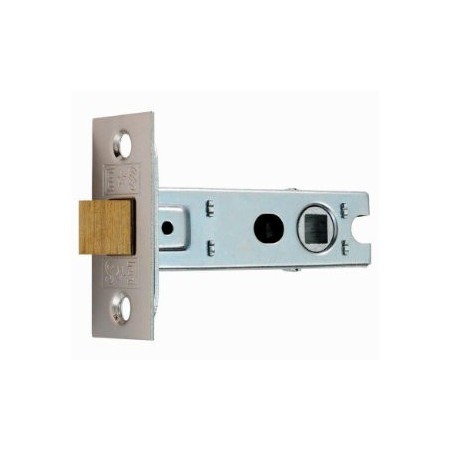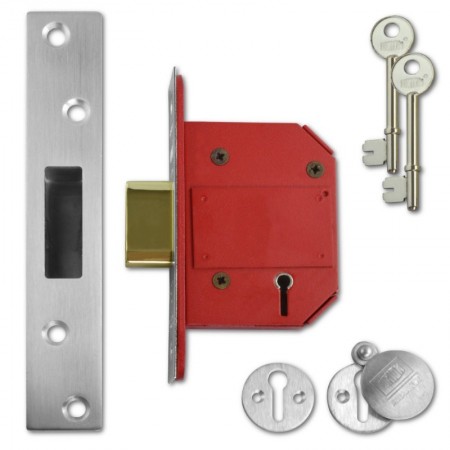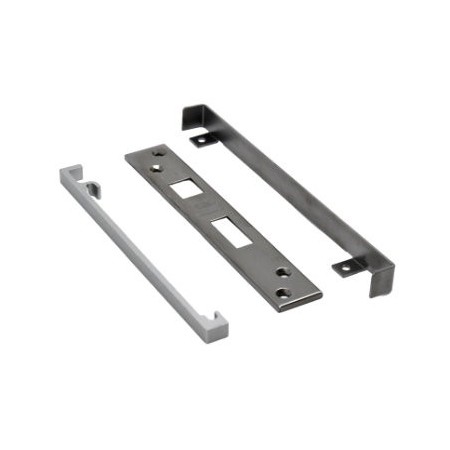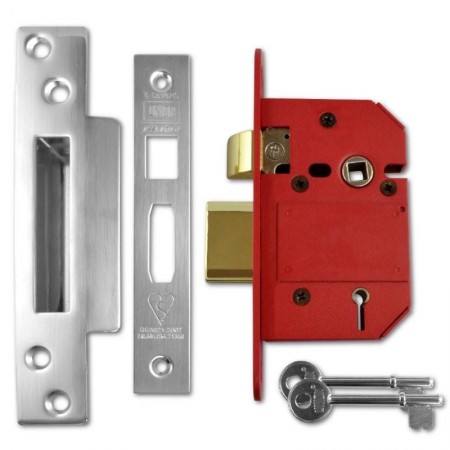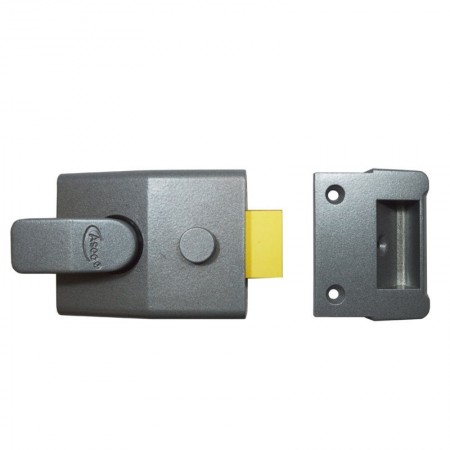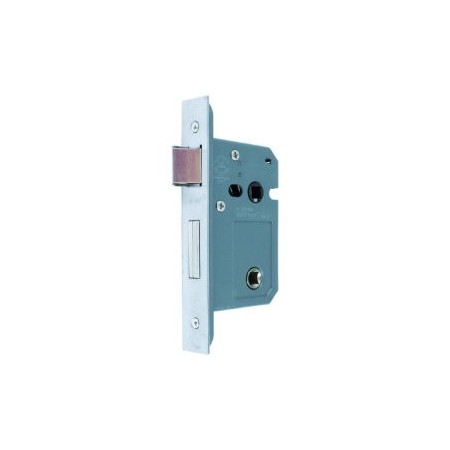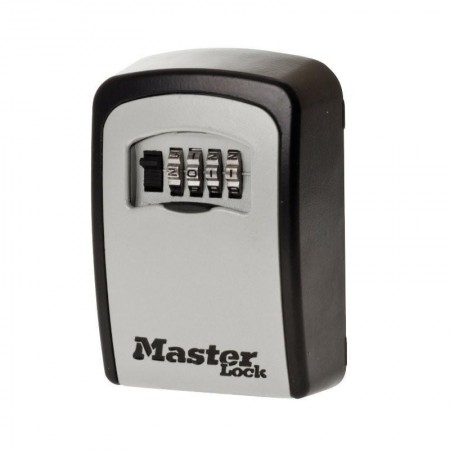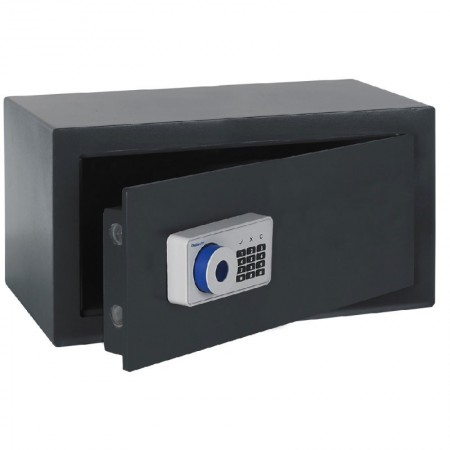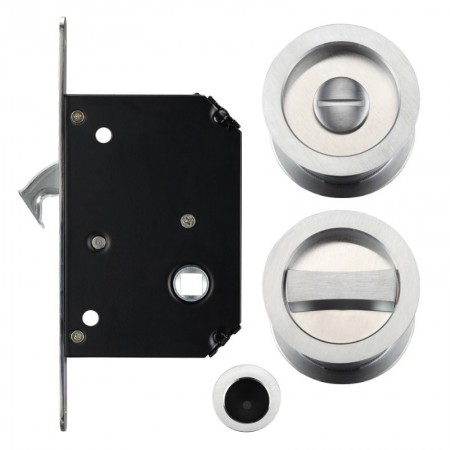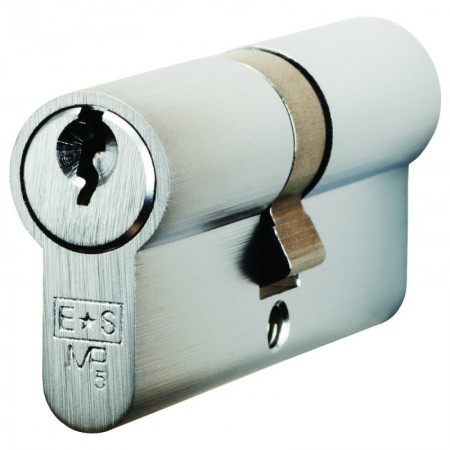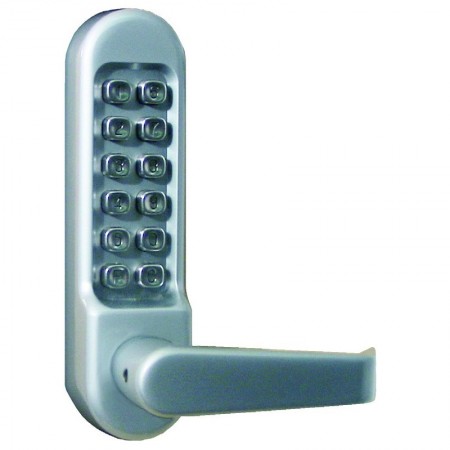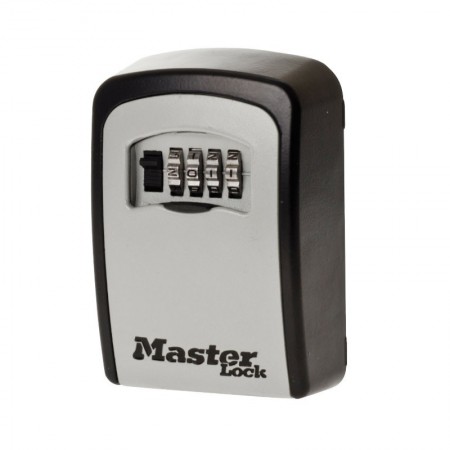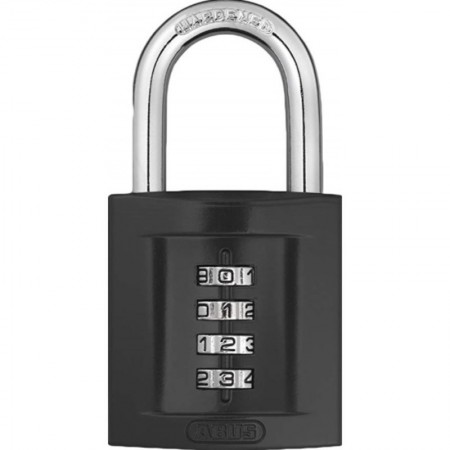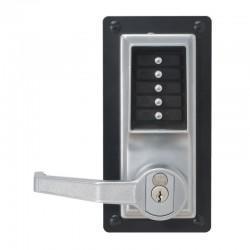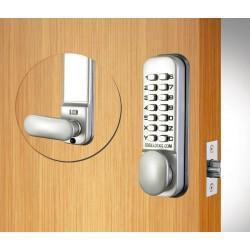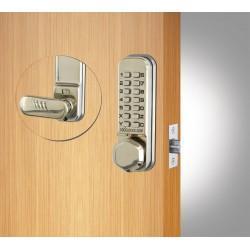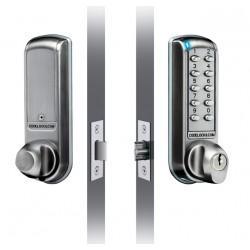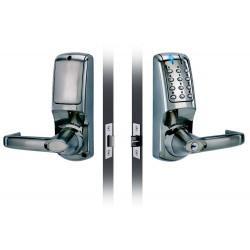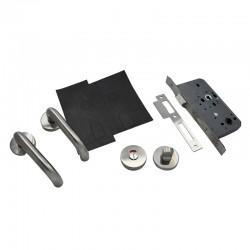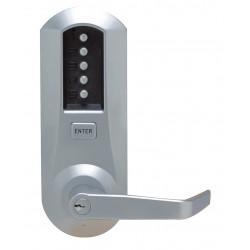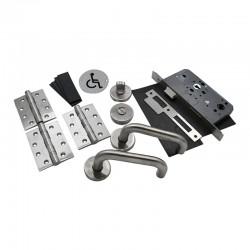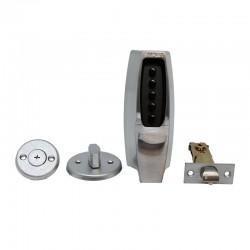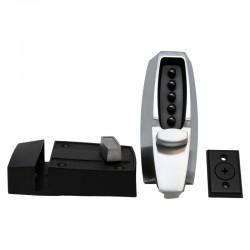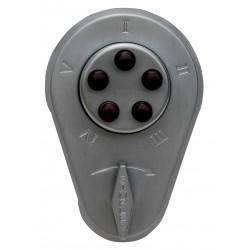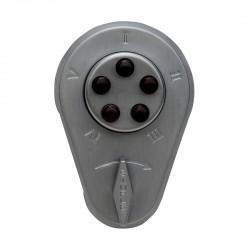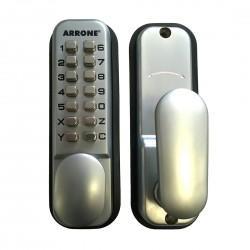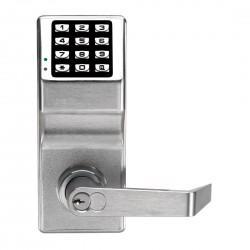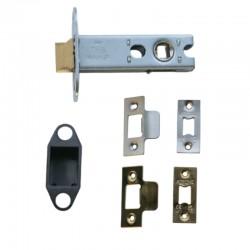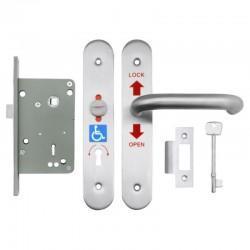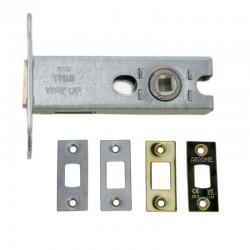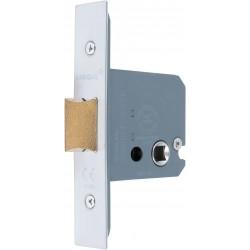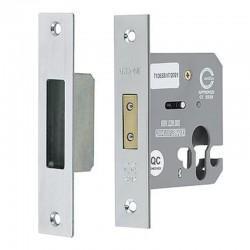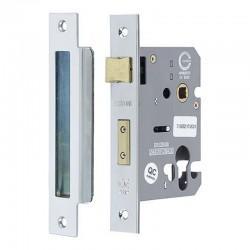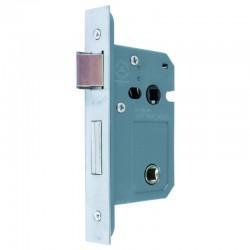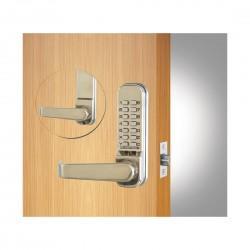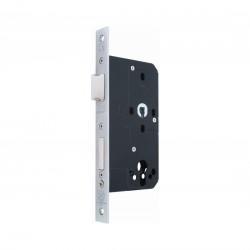Door Locks & Security
Door Locks & Security: The Ultimate in Safety
When it comes to securing your property, nothing is more vital than choosing the right door locks. Whether it's your home, office, or any other building, the safety of its occupants and assets largely depends on the robustness of its door locks and security systems.
Why Choose Our Door Locks & Security Products?
- Unparalleled Security: Our collection boasts a comprehensive range of security locks, from traditional 5 lever locks to the more modern cylinder locks. Each offers an exceptional level of protection against potential break-ins.
- Variety for Every Need: Whether you're looking for tubular latches, a sliding door lock, or a specific fire brigade lock, we've got you covered. Our vast range ensures that you'll find the perfect fit for every door and window in your building.
- Trusted Suppliers: Over the years, we've established partnerships with some of the most renowned suppliers in the industry. This means that every product you purchase from us is of the highest quality, backed by solid warranties.
- Expertise You Can Rely On: With over two decades in the locksmithing field, our in-house team is equipped to offer guidance, answer queries, and ensure that you choose the best products for your built environment.
Highlighting Our Locking Range
Sashlocks
These styles of locks come with a deadbolt and beveled latch bolt, compatible with door handle sets or door knobs. They are designed for utmost security with ease of operation. With the deadbolt ensuring the door stays locked with the key and the latch allowing for the door to be closed when unlocked, these locks offer dual functions for convenience and safety. Their design means that potential intruders cannot simply reach in through a window or glazed door and unlock the door, adding an extra layer of security. They can be lever key operated, or by a cylinder lock barrel.
Deadlocks
These are the epitome of simplicity and security. Operating with a single bolt locking mechanism, deadlocks can only be operated using a key or, in some cases, a turn if they have a cylinder profile. Their straightforward design means fewer moving parts, translating to less wear and tear and longer-lasting performance. Use in conjunction with a door latch if you want to use lever door handles or door knobs. Deadlocks are the perfect fit for a push-pull operation door that needs a locking element. You'll also find them on front doors in residential spaces, combined with a rim nightlatch, or on riser doors. The deadbolts can be straight shooting, hooked, or claw. You can read more about door lock types in our UK locks blog.
Bathroom Locks
A range of mortice lock cases with two followers - one for door handles and one for a bathroom thumbturn lock. The handle follower is 8mm square, and the thumbturn follower is 5mm square (in most cases). Modern bathroom locks have the handle above the locking mechanism, whereas more traditional horizontal lockcases have the door handle or door knob on the same horizontal plane as the thumbturn. If you already have a latch fitted, you can install a separate bathroom deadbolt or tubular deadbolt to provide locking to WCs, bathrooms, and washroom facilities. Also, our specialist lock range includes easy to operate lift to lock options for accessible WCs.
Door Latches
Mortice latches are available as a large case DIN standard latch, a smaller box style latch or a tubular latch. They are available in different lengths to suit different door types and operating furniture. Use a latch on internal doors that don’t require a lock but need to open and close easily. Alternatively, fit with a separate mortice lock, whether lever deadlock or cylinder lock for additional physical security. Read our ultimate guide to door latch types to find out more.
Lever Locks
A traditional form of mortice lock with 3 lever variants for internal doors and 5 lever insurance rated locks to BS 3621 for external doors. Typically in two standard case sizes, with 57mm handle centres. When fitting deadlocks, remember to use escutcheons, and with sashlocks, use lever lock sets of handles or lever handles on rose with separate key profile escutcheons. Lever locks are morticed into the edge of the door with the deadbolt and latch bolts shooting into the door frame. Check your door thickness can accommodate the depth and width of your chosen lockcase.
Cylinder Locks
These can be sashlocks or deadlocks, and rim/surface mounting or a mortice cylinder lock. Different cut outs are available to suit various cylinder profiles including euro, oval, and rim profile cylinders. Check when ordering if you need the cylinder lockcase (mortice or rim) or the cylinder lock barrel that works with the lockcase - the terminology is very similar!
Mortice Locks
Lockcases, whether lever or cylinder mechanisms, sashlocks, deadlocks, or latches, are cut into the body of the door so only the faceplate is visible. They are the most common type of lock. Mortice locks provide a discreet appearance and as they’re cut into the door they are less vulnerable to attack or misuse compared to a rim or surface mounted lock. Select the right backset for your door and door furniture, and centres when fitting a sashlock or bathroom lock.
Rim Locks
These include lock types such as night latches, and are often used on thinner doors that cannot accommodate a mortice door lock. They're commonly found on residential front doors, providing the latching action, with an insurance rated 5 lever deadlock for security. Nightlatch locks have different backsets, finishes, and are available to BS 3621 standard, with mortice models also available.
Padlocks
Our range of high quality locks includes combination padlocks, key-operated models, heavy duty padlocks, and an ARRONE fingerprint padlock, plus a variety of Abus padlocks. Use in conjunction with a hasp and staple to secure doors, gates, shutters, and various other applications. Padlocks can also be fitted to small items such as luggage and can be used to secure moveable items like vehicles when securing a chain. Select the right diameter and length of shackle to suit the application. Models are available for external use.
Digital Door Locks
These include mechanical code door locks that allow for controlled access without fitting a more comprehensive access control system. Ranges include industry leading brands from Borg and Codelocks to dormakaba and ARRONE. Digital keypad door locks allow for easy access for authorised personnel using a preset code - no risk of losing a physical security key or proximity credential. Our varied range includes back-to-back models, gate locks, and lever or knob operation.
Door Security Products
Secondary security products supplement the main locking element so consider if your premises would benefit from door security chains on front doors, hinge bolts on outward opening doors, mortice door bolts, or an external wall mounted key safe. External door locks can often benefit from an additional locking or latching point, especially on tall doors.
Rebate Kits and Accessories
If installing a mortice door lock with key to a pair of doors with a rebated meeting stile, ensure you fit the brand and model-specific rebate kit, and make sure to choose the finish to match the forend of the mortice lock. Rebate kits are commonly 13mm, but 19mm and 25mm used to be popular too, so check your rebate depth when retrofitting to existing doors. Some tubular latches also have matching rebate kits available, if required.
Window Locks
Beyond doors, windows are another potential entry point for burglars. Our range of window locks allows you to protect your business or home and have peace of mind by providing a holistic security solution. We also have a range of window restrictors for additional safety.
Ready to Upgrade Your Security?
Explore our diverse range of door locks, door latches, and physical security solutions today. With our expertise and quality products, rest assured that you're making a sound investment in the security and safety of your property. Dive into our collection now, and fortify your facility with the best in door security.

